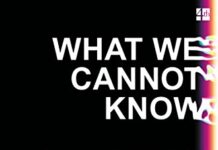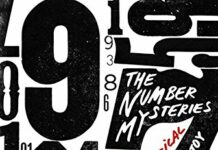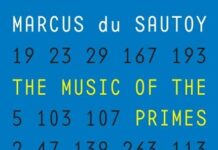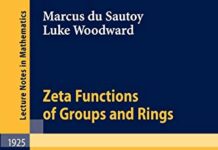
Ebook Info
- Published: 2019
- Number of pages: 320 pages
- Format: PDF
- File Size: 2.39 MB
- Authors: Marcus Du Sautoy
Description
The award-winning author of The Music of the Primes explores the future of creativity and how machine learning will disrupt, enrich, and transform our understanding of what it means to be human.Can a well-programmed machine do anything a human can―only better? Complex algorithms are choosing our music, picking our partners, and driving our investments. They can navigate more data than a doctor or lawyer and act with greater precision. For many years we’ve taken solace in the notion that they can’t create. But now that algorithms can learn and adapt, does the future of creativity belong to machines, too?It is hard to imagine a better guide to the bewildering world of artificial intelligence than Marcus du Sautoy, a celebrated Oxford mathematician whose work on symmetry in the ninth dimension has taken him to the vertiginous edge of mathematical understanding. In The Creativity Code he considers what machine learning means for the future of creativity. The Pollockizer can produce drip paintings in the style of Jackson Pollock, Botnik spins off fanciful (if improbable) scenes inspired by J. K. Rowling, and the music-composing algorithm Emmy managed to fool a panel of Bach experts. But do these programs just mimic, or do they have what it takes to create? Du Sautoy argues that to answer this question, we need to understand how the algorithms that drive them work―and this brings him back to his own subject of mathematics, with its puzzles, constraints, and enticing possibilities.While most recent books on AI focus on the future of work, The Creativity Code moves us to the forefront of creative new technologies and offers a more positive and unexpected vision of our future cohabitation with machines. It challenges us to reconsider what it means to be human―and to crack the creativity code.
User’s Reviews
Editorial Reviews: Review “As machines outsmart us in ever more domains, we can at least comfort ourselves that one area will remain sacrosanct and uncomputable: human creativity. Or can we? …In his fascinating exploration of the nature of creativity, Marcus du Sautoy questions many of those assumptions. The Oxford mathematician, who is as adept at explaining complex theories in prose as he is on television, argues that so much of what we consider to be creativity consists of super-smart synthesis rather than the flash of inspiration.”―John Thornhill, Financial Times“The Creativity Code is only partly a book about AI art. It is as much about how AI thinks and how it does mathematics―du Sautoy’s own special subject. And on these topics, he is thoughtful and illuminating.”―Sunday Times“Fascinating… If all the experiences, hopes, dreams, visions, lusts, loves, and hatreds that shape the human imagination amount to nothing more than a ‘code,’ then sooner or later a machine will crack it. Indeed, du Sautoy assembles an eclectic array of evidence to show how that’s happening even now.”―The Times“Argues reassuringly that true creativity belongs to humanity…A computer may best any human at calculation, but it lacks that snippet of ‘human code’ that lets us know when an idea is not just new but meaningful.”―New York Times Book Review“An ambitious meditation on the meaning of creativity and consciousness.”―Wall Street Journal“Fact-packed and funny, questioning what we mean by creative and unsettling the script about what it means to be human, The Creativity Code is a brilliant travel guide to the coming world of AI.”―Jeanette Winterson“A wide-ranging and fact-packed tour d’horizon of current applications of artificial intelligence in mathematics and the arts.”―The Guardian“In a classic 1950 paper, Alan Turing asked: ‘Can machines think?’ …Du Sautoy’s test is different but no less challenging: can machines be genuinely creative? The interest, just as it was for Turing, lies not so much in finding a definitive answer but in examining what the question itself might mean.”―Prospect“Absorbing…Eloquent and illuminating.”―Nature“Algorithms that not only duplicate human skills but learn from their mistakes are what define artificial intelligence. But du Sautoy considers the possibility of reaching another stage: machine creativity, technology that is itself capable of innovation.”―Inside Higher Ed“Technology is already controlling more and more of our lives every day, sometimes in ways we barely stop to think about. As programs slowly do more of our thinking, Du Sautoy reassuringly insists that there are, indeed, some ways in which technology can never replace human ingenuity.”―Emily Wenstrom, Book Riot“Makes the case for why algorithms could match Beethoven or Picasso―or for that matter, the creative departments of advertising agencies.”―Marketing Week“Algorithms are often seen as opaque or dangerous forces, fueling our fears of apocalypse/the ghost in the machine. But if art is an early warning system and artists the experts at making the invisible visible, then Marcus du Sautoy is, in this remarkable consideration of the limitations and possibilities of AI, the light-bearer, illuminating not only the work of coders and creators, but the mathematics of chaos that underpin art.”―Hans Ulrich Obrist, Director of the Serpentine Gallery and author of The Interview Project“We seem to have convinced ourselves that higher-level creativity and intuition are uniquely human traits. Why? Why could a machine one day not create a truly original work of art, write a moving poem, compose an opera, or even discover a mathematical theorem? The answers, in this compelling and thought-provoking book by mathematician and musician Marcus du Sautoy, can be found by breaking down what it actually means to be creative.”―Jim Al-Khalili, Professor of Theoretical Physics and Presenter of The Secret Life of Chaos“An interesting, reader-friendly discussion of how well computers can be creative.”―Choice About the Author Marcus du Sautoy is the Charles Simonyi Professor for the Public Understanding of Science and Professor of Mathematics at the University of Oxford and the bestselling author of The Music of the Primes, Symmetry, and The Great Unknown. A trumpeter and member of an experimental theater group, he has written and presented over a dozen documentaries, including The Code and The Secret Rules of Modern Living: Algorithms. He also created the codes for Lauren Child’s Ruby Redfort mysteries. He has received the Berwick Prize, the Zeeman Medal, and the Royal Society’s Michael Faraday Prize, among other honors.
Reviews from Amazon users which were colected at the time this book was published on the website:
⭐I did not really learn what’s is really coming to us shortly, how AI will change the way work as individuals and teams. Specifically, what will change is the manner of how the world’s business is done. Way too much time spent on games and areas that will be of little interest to those seeking to see what’s coming. VERY DISAPPOINTING….and, not an inexpensive book Keep looking if you really want to understand the world of AI that’s happening now and coming faster by the month. A mathematical view of how computer algorithms within the world of machine learning, deep learning is interesting and we understand the difference between computers and human creativity and what that may/can mean in our futures.
⭐I’m an artist and also an engineer. This book does an excellent job of elucidating the interesting issues around using computers as assistants in art making. Though the book centers on ML and AI it also tackles the general issues around using computers as ‘artist’s assistants’ . An interesting aspect of all of this is that the issues demand some kind of answer to ‘what is art’.
⭐Starts out slow for those that are not mathematicians, however, escalators rapidly. Goes into depth with AI’s application to gaming, classical music, jazz, writing, painting, and poetry.
⭐Excellent read…can’t wait until the next book!
⭐Very well researched book full of the history of how art and AI intersect. Lots of great stories of how researchers have attempted to automate creativity or challenge the boundaries of what’s possible, most were gripping and fascinating and he’s good at explaining complex concepts simply. One star off because the author takes deep detours into math theory, because that’s his background. I felt I was mostly able to keep up but I don’t share his excitement there and those sections were rough to get through.
⭐This is a fantastic book for numerous reasons:1) written very well (clearly) – even though the author is a mathematician he doesn’t go off into mathematical daydreams and instead builds a nice story of what is actually happening in the world of AI2) He uses great examples of real-life software that have already been implemented and shows how these are leading to the next steps of AI. The story about the Go AI beating the human opponent, how dating algorithms are used by hospitals to choose med students, etc are really great and will stretch your imagination about where AI is really going.Also, the one about the AI that parsed thru the text of Game of Thrones novels and could successfully determine which characters would continue and which would die was very interesting.3) valuable intro to AI at a high level – I’m a long time software developer, but have no real experience with AI and this served as a great intro to AI possibilities.4) Stimulates the reader’s thinking : here of course is the best reason for reading this. If you really read closely and absorb the material you will begin to imagine the near future of AI and what might be coming.Overall this was a great read and was just the type of thing I was looking for as a solid intro to AI.
⭐The creativity code explores algorithms and how technology is being used to impact creativity, art, and innovation with AI. The author explores AI algorithms in music, writing, art, science and mathematics and shows how algorithms are impacting these disciplines as well as the human response to AIs. It’s a fascinating read that explores how the evolution of technology is impacting our lives, but what I find most intriguing is the possibility of how human creativity can evolve as a result.
⭐ excelente libro
⭐
Keywords
Free Download The Creativity Code: Art and Innovation in the Age of AI in PDF format
The Creativity Code: Art and Innovation in the Age of AI PDF Free Download
Download The Creativity Code: Art and Innovation in the Age of AI 2019 PDF Free
The Creativity Code: Art and Innovation in the Age of AI 2019 PDF Free Download
Download The Creativity Code: Art and Innovation in the Age of AI PDF
Free Download Ebook The Creativity Code: Art and Innovation in the Age of AI



